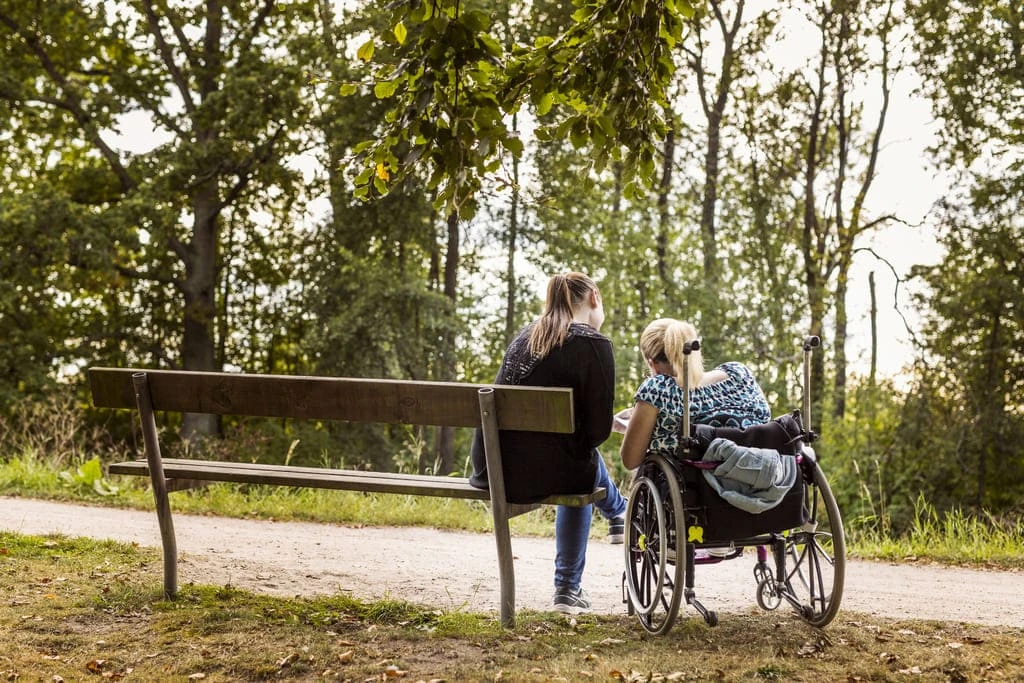What is Nature Deficit Disorder?
Nature deficit disorder is not an official medical diagnosis. It is a term coined by American author Richard Louv to describe the widespread effects of separation from nature on human health. Nature deficit disorder contributes to various health challenges in children and adolescents. Lack of connection to one’s natural surroundings and sunlight can lead to vitamin D deficiency, obesity, attention difficulties, and mental health challenges.
Research shows nature significantly benefits several aspects of health. Spending considerable time in natural environments can improve one’s cognitive functions and learning abilities. Experts claim that time in nature can help students build self-esteem, develop focus, and achieve long-term peace of mind.
Studies indicate that exposure to nature is particularly important in relieving the symptoms of attention-deficit hyperactivity disorder (ADHD) in children and adults. In contrast, an increase in indoor activities related to technology (such as watching TV and playing video games) may decrease attention span and reduce mental well-being.
Causes of Nature Deficit Disorder
Nowadays, children and adolescents can enjoy various benefits due to the development of modern technology. While technology offers opportunities for learning and leisure time, children may choose to spend the majority of their time looking at screens and spend little to no time in nature.
Choosing technology over social interactions in nature can be detrimental to one’s overall well-being. An expanding body of scientific evidence suggests that the following factors may lead to nature deficit disorder:

- Increase in screen time
- Decreased appreciation for the natural environment
- Lack of education concerning nature in public and private education
- Urbanisation
- Lack of access to natural landscapes and open space
Symptoms of Nature Deficit Disorder
As mentioned earlier, nature deficit disorder is not officially recognised as a medical condition. Nevertheless, psychologists and other medical experts agree that the deprivation of nature young people experience can significantly affect their well-being.
Below are listed the physical and psychological effects of nature deficit disorder.
Physical Symptoms
Several physical symptoms are linked to the lack of exposure to green spaces, such as:
- Vitamin D deficiency
- Migraines
- Reduced immune system
- Increased stress and tension
- Reduced energy
- Obesity
Psychological Symptoms
Several psychological symptoms are linked to the lack of exposure to green spaces, such as:
- Anxiety
- Irritability
- Reduced ability to manage stress
- Increased mental health challenges
- Sleep disturbances
- Decreased attention span
Effects on Mental Health
Medical experts have established a link between mental well-being and spending a decent amount of time in nature. Nature deficit disorder may impact your emotional state and contribute to developing various conditions.
For instance, staying indoors can lead to a prolonged sense of sadness and dread, which without treatment, can develop into depression. In addition to that, isolation from nature may lead to feelings of anxiety. The more time you spend indoors, without a balanced amount of time in natural settings, you may increase feelings of anxiety and social withdrawal.
Children and adolescents with learning disabilities can also benefit from time spent in nature. Isolation from nature can negatively impact confidence and mental well-being, while being in nature is mood-boosting and relaxing.
The Role of Support Workers in Promoting Nature-based Home Care
Modern care services take a person-centred approach to supporting people with complex care needs, which includes outdoor activities and inclusion in the local community. Person-centred home support services include nature-based activities that benefit mental and physical well-being.
Your support worker should promote your independence and well-being through independent play or team activities in nature.
Support workers can provide transportation and accompany the people they serve to outdoor activities, benefiting their physical and mental health. For example, a person can benefit from taking a walk to a local park and spending time with other members of the local community. Support workers can help ensure that the people they serve spend time in nature, prioritising their needs and preferences.
Benefits of Nature and Outdoor Activities for People with Complex Needs
Spending time outdoors in nature is good for physical and emotional well-being and can improve a person’s mood, decrease stress, and help prevent depression. If a person with complex care needs struggles with behaviours of distress, engaging in sports and other physical activities in nature can provide them with relaxation and positivity. Unlike indoor activities, outdoor exercise can stimulate the senses in a way that improves mental well-being.
Another significant benefit of outdoor activities in nature is the exposure to sunlight, which allows the person to absorb vitamin D. Research shows that vitamin D can protect you from a wide range of physical and psychological challenges, such as reducing the risk of depression and osteoporosis and reducing inflammation. Make sure to spend a reasonable amount of time in the sun, and don’t forget to use sunscreen.
Some people find that they exercise for longer and more efficiently in nature rather than exercising at home. Studies show that children and adolescents usually spend more time in physical activities that take place in nature. By exercising outside, such as going for a walk, you can take steps to improve your physical and mental health.
Integration of Nature in the Home Care Plan
Outdoor activities in nature are a crucial part of a quality care plan for older adults and young people with complex care needs. Disabilities and conditions should not stop individuals from nurturing a connection with nature. In order to prevent nature deficit disorder, support workers should integrate the following activities in their care services.
Outdoor Activities and Exercise Programs
There are many adaptive options for children and adults with complex care needs to stay active and establish a connection to nature. Depending on their needs and preferences, people can take up hiking, biking, playing football, or walking. These activities can be even more beneficial for the individual when done in a group.
Gardening and Horticultural Therapy
Gardening and plant-based activities can serve a therapeutic purpose in the accommodation and treatment of people with complex care needs. Horticultural therapy allows individuals to regain old skills or learn new ones. It helps improve the person’s language skills, social integration, memory, and overall cognitive skills.

Access to Parks and Nature Trails
A support worker’s care plan should include visits to accessible parks and nature trails. Individuals with complex care needs should get adequate accommodation in nature, including wheelchairs, mobility aids, and other assistive devices.
Carer Supported Holidays
Everyone deserves a lovely time away from their usual environment. Carer-supported holidays give people with complex care needs the opportunity to spend memorable moments and recharge their batteries according to their own needs and preferences, and can be tailored to include time spent in natural environments.
Leaf Complex Care Includes Nature in its Home Care Plans
At Leaf Complex Care, we treat nature therapy as an essential part of our home care services for people with complex care needs. Our support workers employ various outdoor activities, and we are aware of the benefits environmental education programs bring to individuals with learning disabilities and complex care needs.
Leaf’s impact-driven support workers take a humanised, person-centred approach to handling behaviours of distress, caring about the underlying causes. We focus on helping the people we support overcome nature deficit disorder, encouraging their social integration into the local community. Our home care plans prioritise the independence, privacy, and dignity of everyone we serve.
If you are searching for a quality care provider for yourself or a loved one with complex care needs, Leaf Complex Care is the ideal choice for you. We offer high-standard support services to children and adults, and our offices are located in Bristol, Exeter, Slough, and the Midlands.
Contact us today, and we will outline a care plan tailored to your specific needs.








